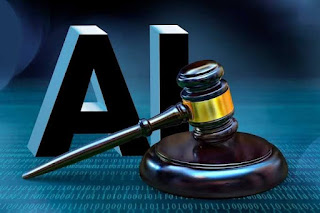•Abstract
Artificial intelligence is considered as the future of the modern world because of its technology and capabilities of doing the works which at first only a human could do. Now AI can easily create creative and unique works much better than the humans. Ai has now entered each field that exists. It has traversed quite some distance since its creation, making AI technology no longer just a dream but reality now. From machine learning, natural language processing to GenAI, the technology has continuously become advanced in nature. In today’s world one can get literally anything done thanks to the technology provided. In the previous times one could not have imagined having Chatgpt, or a robot with human intelligence but now that’s the reality. If we look in the previous times, huge amount of data used to be stored in form of physical files and one had to go through all the data to analyse which was a very tiring and time consuming work, but now with the help of computers and other smart technology one can easily store the data digitally and anyone can get access to it very easily. Now we can easily give the computer instructions to analyze the huge data and give its summarized data. Artificial intelligence is a highly transformative and one of a kind technology of the mid twenty-first century, mostly due to its capacity to acquire knowledge from past experiences and operate independently of human intervention. This is attributed to its capacity to acquire knowledge and operate autonomously, apart from any human involvement.
AI and IP have emerged as the majority of the 21st century's most pressing concerns. This is a contentious topic because of its applicability and scope in many different industries, where technology is being introduced with the goal of improving any task by replacing humans or minimising their effort. Now the AI has its own capability to think and produce new works on their own. Because of this capability, it has already reached at that point where it is able to perform those activities which are normally performed by the human beings. The researcher would like to explore the utility of AI in legal field particularly in copyright area under the current scenario of intellectual property. Perceiving the rapid growth of AI in creative process, the judges and legislators should also carefully analyse how AI-creations could be brought under the purview of copyright laws.
Currently the debate regarding copyright on AI creations is one of the hot topics and still being discussed. As per the traditional principles of copyright law, it is getting difficult to decide who gets the ownership rights on the works being generated by AI. AI is the future of the world and is being used and part of mostly each and every sector including IPR. The following research focuses mainly on copyright rights on AI creations. AI-generated works refer to creative outputs produced by artificial intelligence systems autonomously, without direct human intervention in the generation process. These works encompass a broad spectrum of creative endeavors, ranging from literature, music, visual art, to scientific discoveries and technical innovations. What distinguishes AI creations from traditional human-authored creations is the pivotal role played by machine learning algorithms, neural networks, and other AI technologies in the creative process.
The fact that nowadays even AI can generate its own creative works cannot be ignored. People not in support of AI argue that humans who make the algorithm are the ones responsible for the content AI generates and should be getting the rights. On the flip side many argue that Artificial Intelligence keeps on evolving based on the data being fed and generates its own content. It is perceived that AI has emerged as a new dimension and intellectual property rights are a vital instrument for protecting invention and providing economic value for intellectual labour. On this issue there have been many discussions and moderations have been held at international level, but no decision has been reached on the concrete solution. The contention of whether or not artificial intelligence's work should be given special status continues to be debated.
The various aspects of authorship and ownership from the perspective of copyright, such as who can enjoy this work or be regarded its creator and owner, whether AI meets the legal personhood standards. An overview of legal environment in which basic protection for AI-creations can be given and as a result of these protections how society would get affected also requires its exploration.
Authorship and ownership regarding AI Generated works:
The tremendous development of artificial intelligence brings with it several intellectual property rights challenges, including copyrights and patents. In the case of the AI itself, the inventor may be able to assert patent rights; depending on the jurisdiction, copyrights or patents may be asserted in the case of code or software incorporated into the AI. Artificial intelligence (AI) has emerged as a self-sufficient writer that can create original work on its own in recent years. Artificial intelligence (AI) language models, like OpenAI's GPT (Generative Pre-trained Transformer) series, have shown remarkably adept at producing prose that is human-like in a variety of subjects and genres. These artificial intelligence writers can write poetry, novels, essays, and even short bits of code with little assistance from humans, obfuscating the line between human and machine authorship.



.jpeg)


